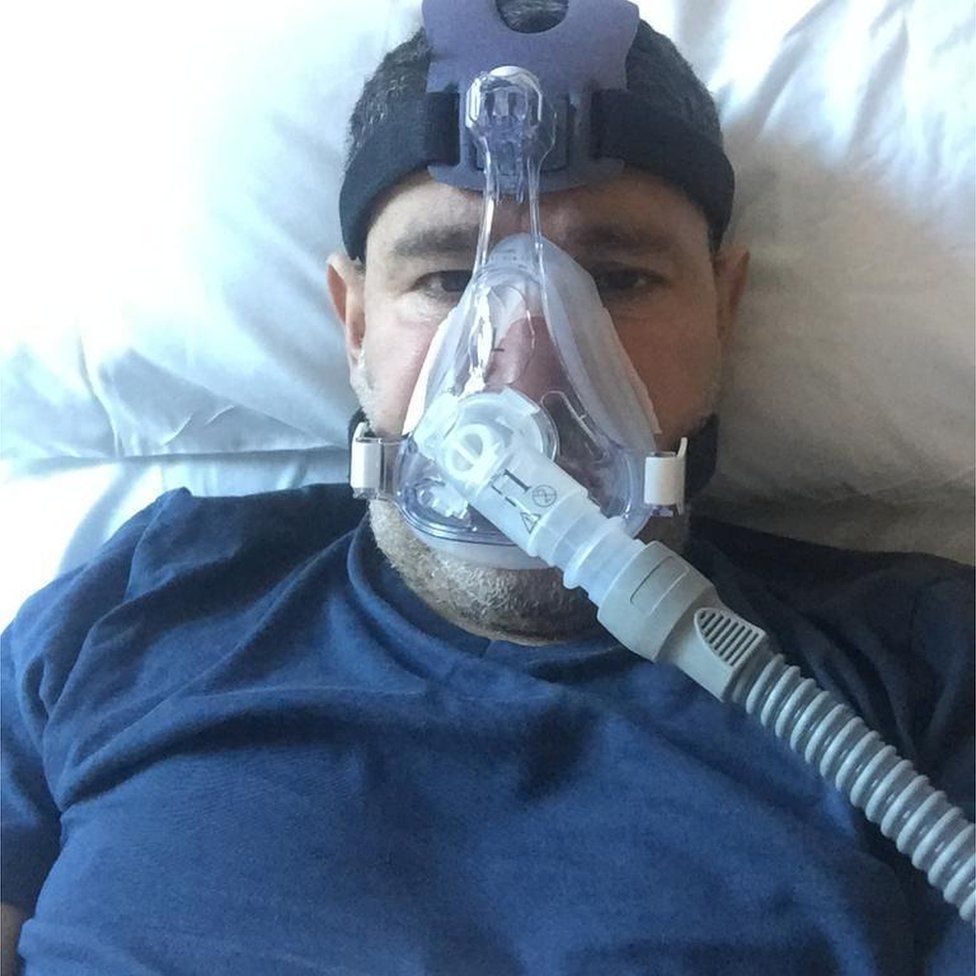“The Biggest Mistake I made in my Life” Refuse The COVID Vaccine

As in many other hospitals, the number of patients being treated for Covid-19 in Bradford Royal Infirmary is sharply rising. About half of them had chosen not to be vaccinated, says Dr John Wright - which many now deeply regret.
"I was offered the vaccine, but I was arrogant," says Faisal Bashir, a super-fit 54-year-old.
"I was going to the gym, cycling, walking and running. Given that I was strong and healthy I didn't think I needed it. That also meant that if it turned out not to be safe I wouldn't have taken any risks.
"But the truth was that I couldn't avoid the virus. It still got me. I don't know how or where."
Faisal, who was discharged on Wednesday after a week in hospital receiving oxygen, is keen to warn others not to make his mistake.
"What I've experienced in hospital - the care and expertise - humbles me," he says.
"People are filling the hospitals by taking chances and it's wrong. I feel terrible. I feel so bad about it and I hope by speaking out it helps others avoid this."
He is one of the fourth wave of Covid patients in Bradford Royal Infirmary. Last month the number of patients in the hospital with Covid was down to single figures, for the first time since last summer. This week it is heading towards 50, as the Delta variant conquers all before it.
BRI
This reflects the rising rates in the community - up by a third in the last week, to nearly 400 cases per 100,000. As has long been the case, it is young people who are driving this change, with rates in teenagers surpassing 750 per 100,000, and those in their 20s not far behind.
Although few of them end up in hospital, our patients are younger now on average than in earlier waves, with more in their 30s and 40s.
"Some have had two vaccines and so have had milder disease - they are alive on Cpap (non-invasive ventilation with oxygen) when without the vaccine they would probably be dead," my respiratory colleague Dr Abid Aziz told me after an exhausting six-hour ward round.
"Others have just had their first dose and so are not fully protected. Worryingly, about half of the patients on the ward today haven't been vaccinated. I have stopped asking them why, as they are clearly embarrassed."
Abderrahmane Fadil, a 60-year-old science teacher with two young children, also has many regrets. Prof John Wright, a doctor and epidemiologist, is head of the Bradford Institute for Health Research, and a veteran of cholera, HIV and Ebola epidemics in sub-Saharan Africa. He is writing this diary for BBC News and recording from the hospital wards for BBC Radio.
He was wary of the vaccines because of the speed at which they were rolled out. He ended up in intensive care for nine days - the first time he had spent a night in hospital since arriving from Morocco in 1985.
"It's so lovely to be alive," he says.
"My wife had the vaccine. I didn't. I was reluctant. I was giving myself time, I was thinking that in my life I've lived with viruses, bacteria, and I thought my immune system was good enough. And I'd had symptoms of Covid at the start of the pandemic and thought perhaps I'd had it. I thought my immune system would recognise the virus and I'd have defences.
"This was the biggest mistake in my life. It nearly cost me my life. I've made many silly decisions in my life, but this was the most dangerous and serious one.” "I wish I could go to each and every person who refuses to have the vaccine," he says, "and tell them, 'Look, this is a matter of life of death. Do you want to live or die? If you want to live, then go and get the vaccine.’" For many of the patients who have not been vaccinated, being admitted with severe Covid is an alarm call to the deadly consequences of fake news about Covid and vaccines.
Faisal admits being influenced by conversations on social media, and the worries about the vaccine in the city's Asian community, as well as news reports about the extremely low risk of blood clots with the AstraZeneca vaccine.
About three-quarters of the adult population in Bradford have had a first dose of the vaccine, compared with 87% nationwide.
In the hospital we are deeply nervous about the easing of restrictions on Monday. Like everyone in the country we want to reclaim our previous lives, and while the link between infections and hospitalisations is clearly reduced, it remains ever present on our wards.
And although there are now many fewer deaths from Covid than before there are still some, and the number is growing again. So the tidal race between the vaccination wave and the spread of Sars-CoV-2 remains a matter of life and death.
If there is one lesson from the last year, it is to never underestimate this virus.
Follow @docjohnwright, radio producer @SueM1tchell on Twitter
Comments